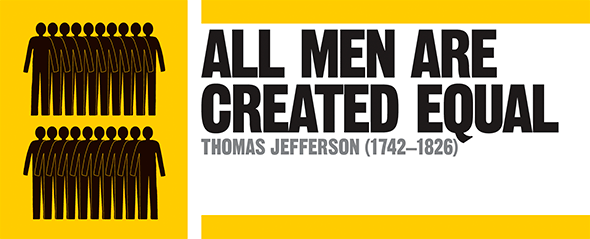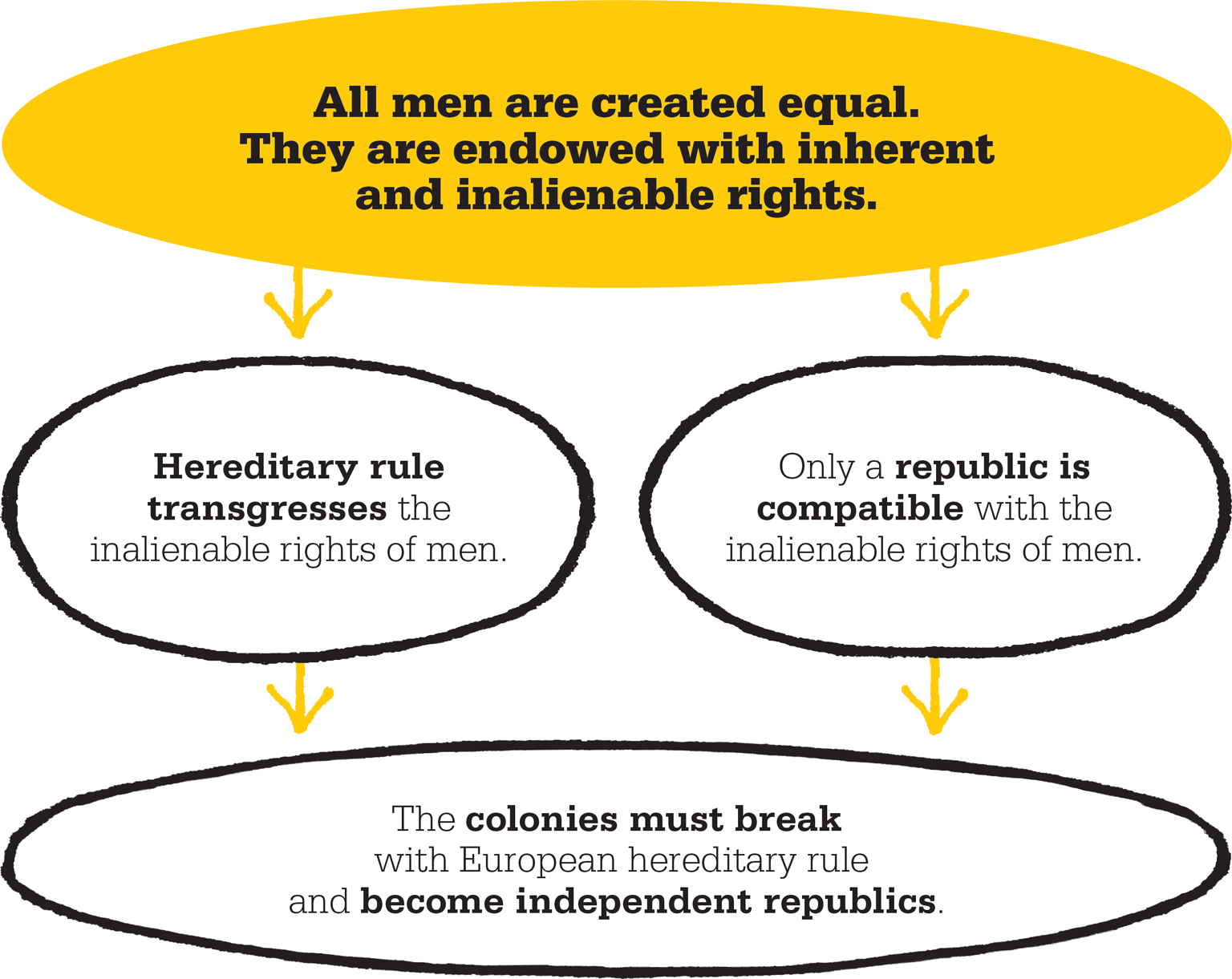
IN CONTEXT
Nationalism
Universal rights
1649 England’s King Charles I is tried and executed for acting “against the public interest, common right, liberty, justice, and peace of the people.”
1689 John Locke refutes the divine right of kings and insists sovereignty lies in the people.
1789 The French Revolution’s Declaration of the Rights of Man and Citizen asserts that all men “are born and remain free with equal rights.”
1948 The UN adopts the Universal Declaration of Human Rights.
1998 DNA evidence suggests that Jefferson may have fathered the children of his slave Sarah Hemings.
The American Declaration of Independence is one of the most famous texts in the English language. Its assertion that all people hold the right to “Life, Liberty, and the pursuit of Happiness” still helps to define how we think about a good life, and the conditions that make it possible.
The Declaration was drafted during the American Revolution, a revolt of Britain’s 13 American colonies against rule by the Crown. By 1763, Britain had won a series of wars against France for possession of these colonies, and was now taxing them to offset the huge cost of the wars. Parliament did not have a single representative from the American colonies, yet it was making decisions on their behalf. Protests in Boston against taxation without representation led to British military intervention, which spiraled into war. At the First Continental Congress of 1774, the colonists demanded their own parliament. A year later, at the Second Congress, with King George III spurning their demands, they pushed for total independence.

From Old World to New
Thomas Jefferson, a delegate to the Second Continental Congress, was appointed to draft a declaration of independence. He was a key figure in the American Enlightenment, the intellectual movement that was a prelude to the revolution.
"The God who gave us life gave us liberty at the same time; the hand of force may destroy but cannot disjoin them."
Thomas Jefferson
Colonists from Europe could look back to the Old World and see absolute monarchies and corrupt oligarchies presiding over squalid, unequal societies, which were often at war, with religious tolerance and minimal freedoms thrown aside. Jefferson and other intellectuals in the New World looked to thinkers such as English liberal philosopher John Locke, who stressed the “natural rights” of humanity, and the need for government to hold to a “social contract” with the governed.
While Locke had defended Britain’s constitutional monarchy, Jefferson and others took a far more radical message from his writings. To Locke’s support for private property and freedom of thought, Jefferson added republicanism. In this, he was highly influenced by Thomas Paine, whose pamphlet Common Sense early in 1776 popularized the arguments for a republic. The Declaration of Independence marked a break not only with colonialism, but with all hereditary rule, which was held to be incompatible with the notion that “all men are created equal” and to transgress their “inalienable rights.”
Signed on July 4, 1776, by representatives of 13 states, the full text still retains its original force in its denunciation of the arbitrary rule of monarchs. It helped shape the French Revolution and, from Gandhi to Ho Chi Minh, inspired leaders of future independence movements.

Jefferson presented the first draft of the Declaration of Independence to the Congress. The final version was read aloud in the streets in the hope that it would inspire men to sign up to fight.
THOMAS JEFFERSON

Thomas Jefferson was born in Shadwell, Virginia. He was a plantation owner, and later a lawyer, who became the third president of the United States in 1801. A key figure in the Enlightenment, he was appointed as the principal author of the Declaration of Independence in June 1776, while serving as a delegate from Virginia to the Second Continental Congress.
As a planter, Jefferson owned well over 100 slaves, and he struggled to reconcile this position with his beliefs in equality. His text denouncing slavery in the original draft of the Declaration was excised by the Congress. Following victory over Britain in 1783, Jefferson’s subsequent move to ban slavery in the new republic was defeated by a single vote in Congress.
After losing the presidency in 1808, Jefferson remained active in public life, founding the University of Virginia in 1819. He died on 4 July 1826.
Key works
1776 Declaration of Independence
1785 Notes on the State of Virginia
See also: Hugo Grotius • John Locke • Jean-Jacques Rousseau • Thomas Paine • George Washington
